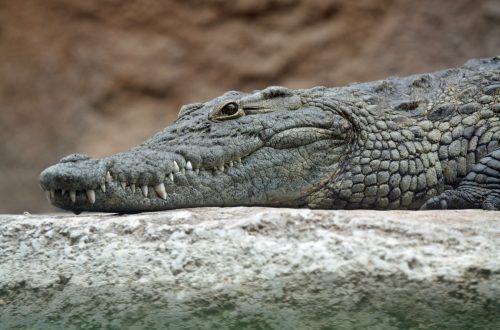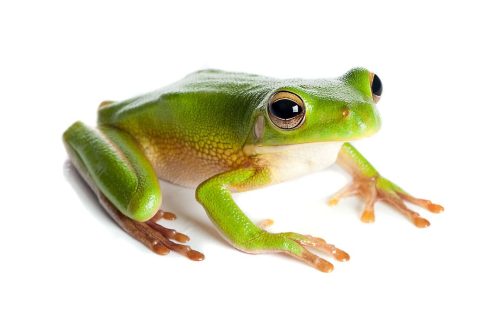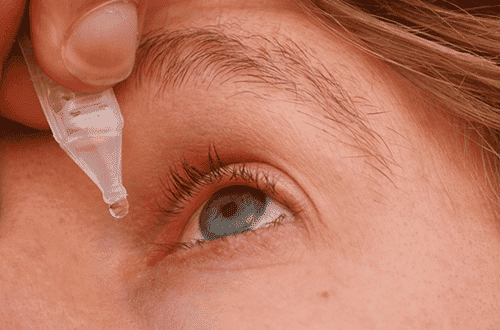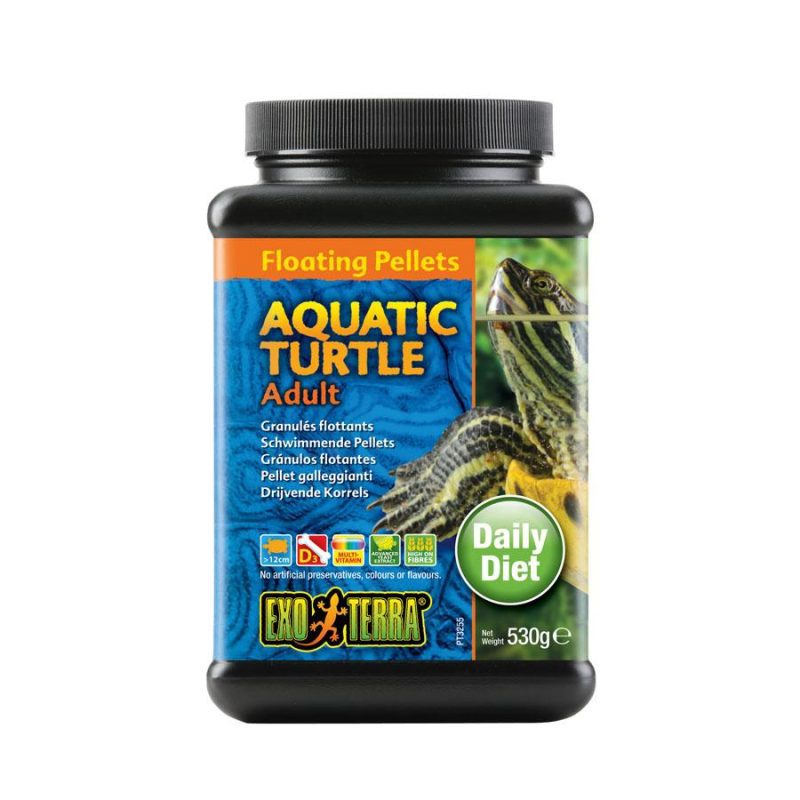
Vitamins for turtles
In nature, turtles get the vitamins they need with their food. At home, it is very difficult for turtles to provide all the variety of what they eat in nature, so you have to give special vitamin supplements. Turtles must receive a full range of vitamins (A, D3, E, etc.) and minerals (calcium, etc.), otherwise they develop a whole range of diseases that can cause illness and even death. Commercial supplements of calcium and vitamins are usually produced separately, and both should be given in small quantities along with food once a week.

For land herbivorous turtles
Land turtles are encouraged to give dandelions and grated carrots (as sources of vitamin A). In summer, when feeding with various fresh weeds, you can not give vitamin supplements, and at other times of the year you need to use a ready-made vitamin complex in the form of a powder. Land turtles are given vitamins once a week sprinkled on food. If the turtle refuses to eat food with vitamins, stir it so that the turtle does not notice. It is impossible to pour or pour vitamins into the mouth of turtles immediately, and it is also impossible to lubricate the shell with vitamins. Calcium should be given to tortoises year-round. Powder supplements can be replaced with a single injection of the Eleovit vitamin complex for animals in spring and autumn at a dosage corresponding to the weight of the turtle.

For predatory turtles
Aquatic turtles with a varied diet usually do not need vitamin complexes. The source of vitamin A for them is beef or chicken liver and fish with entrails. Complete feeds from Tetra and Sera in granules are also suitable. But if you feed a predatory turtle with fish fillets or gammarus, then it will have a lack of calcium and vitamins, which will lead to sad consequences. If you are not sure that you are feeding the turtle fully, then you can give it pieces of fish from tweezers, which must be sprinkled with a vitamin complex for reptiles. Powder supplements can be replaced with a single injection of the Eleovit vitamin complex for animals in spring and autumn at a dosage corresponding to the weight of the turtle.

Ready-made vitamin supplements
When choosing a vitamin supplement, large doses of A, D3, selenium and B12 are dangerous; B1, B6 and E are not dangerous; D2 (ergocalciferol) – poisonous. In fact, the turtle needs only A, D3, which must be given in the proportion A:D3:E – 100:10:1 once every 1-2 weeks. The average doses of vitamin A are 2000 – 10000 IU / kg of the feed mixture (and not the weight of the turtle!). For vitamin B12 – 50-100 mcg / kg of the mixture. It is important that calcium supplements contain no more than 1% phosphorus, and even better, no phosphorus at all. Vitamins such as A, D3 and B12 are deadly in overdose. Selenium is also very dangerous. Conversely, turtles are quite tolerant of high doses of vitamins B1, B6 and E. Many multivitamin preparations for warm-blooded animals contain vitamin D2 (ergocalciferol), which is not absorbed by reptiles and is highly toxic.
!! It is important not to give vitamins and calcium with D3 at the same time, because. otherwise there will be an overdose in the body. Cholecalciferol (vitamin D3) causes hypercalcemia by mobilizing the body’s calcium stores, which are mainly found in bone. This dystrophic hypercalcemia results in calcification of blood vessels, organs, and soft tissues. This leads to nerve and muscle dysfunction and cardiac arrhythmias. [*source]
Recommended ![]()
- Zoomed Reptivite with D3/without D3
- Arcadia EarthPro-A
- JBL TerraVit Pulver (1 scoop of JBL TerraVit powder per 100 g of food per week, or mixed with JBL MicroCalcium 1:1 at a dose of 1 g of mixture per 1 kg of turtle weight per week)
- JBL TerraVit fluid (drop JBL TerraVitfluid on the food or add to the drinking vessel. Approx. 10-20 drops per 100 g of food)
- JBL Turtle Sun Terra
- JBL Turtle Sun Aqua
- Exo-Terra Multi Vitamin (1/2 tablespoon per 500 g of vegetables and fruits. Mixed with Exo-Terra Calcium in a 1:1 ratio)
- FoodFarm multivitamins
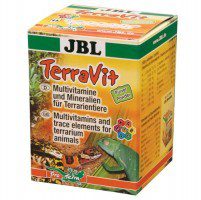
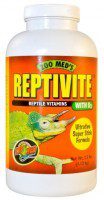
We do not recommend ![]()
- sera Reptimineral H for herbivores (add to feed at the rate of 1 pinch of Reptimineral H per 3 g of feed or 1 teaspoon of Reptimineral H per 150 g of feed)
- sera Reptimineral C for carnivores (Add to feed at the rate of 1 pinch of Reptimineral C per 3 g of feed or 1 teaspoon of Reptimineral C per 150 g of feed). Increased selenium content.
- SERA Reptilin
- Tetrafauna ReptoSol
- Tetrafauna ReptoLife (ReptoLife – 1 rub per month, also 2 g / 1 kg of turtle weight). It is an incomplete vitamin complex and does not contain the B1 vitamin.
- Agrovetzaschita (AVZ) REPTILIFE. The drug was developed by AVZ and D.B. Vasiliev, but the proportions of the vitamin complex were not observed in the production at AVZ. And the consequence of which is that this drug can cause serious harm to the health of turtles and even cause the death of a pet!
- Zoomir Vitaminchik. It is not vitamins, but fortified food, so it cannot be given as the main vitamin supplement.





